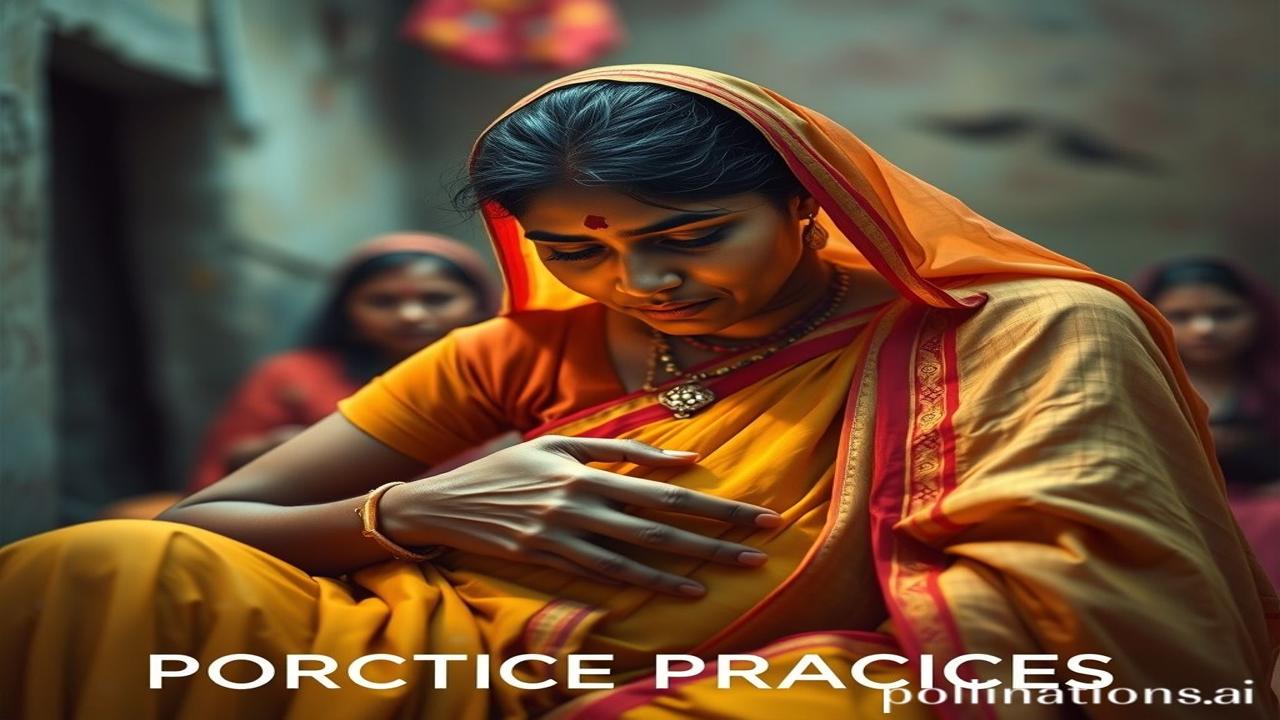Dadi Maa ki God Mein: Unveiling India’s Traditional Postnatal Care
“Subah ki pehli kiran, aangan mein neem ki khushboo, aur dadi maa ki woh halki si muskaan…kya yaad hai aapko?” This isn’t just nostalgia; it’s a window into India’s rich tradition of postnatal care, a sacred period where a new mother is nurtured and protected, both physically and spiritually. Waqt ki dhool mein chhupi, yeh parampara aaj bhi humare dilon mein zinda hai, shaping how we welcome new life into the world.
Prasav Aur Parivaar: A Historical Embrace
What we now call postnatal care, or “jaappa” in many Indian households, is deeply rooted in ancient Ayurvedic and Siddha systems of medicine. Dating back thousands of years, these practices emphasize restoring balance in the new mother’s body after the intense experience of childbirth.
Origin & Timing: This “care package” usually starts immediately after childbirth and extends for 40 days to 6 months, depending on regional customs and family traditions. Imagine, across the vast landscape of India, from the snow-capped Himalayas to the sunny shores of Kerala, unique rituals and remedies have evolved to support the new mother.
Importance: It’s not just about physical recovery; it’s about emotional and spiritual well-being. Back then, childbirth was considered a vulnerable state, not just for the mother but for the entire family. These traditions aimed to safeguard against “evil spirits” and ensure a healthy, prosperous future for the newborn and its parents.
Think about it: While modern medicine focuses on the clinical aspects, these traditional practices embraced the holistic well-being of the woman, acknowledging her role as the keystone of the family. It’s a beautiful testament to the importance our ancestors placed on nurturing both mother and child.
Zameeni Sach: The Life of a New Mother
Let’s step into a typical Indian household a few centuries ago. Ma Yashoda has just given birth to a beautiful baby boy. For the next forty days, her life will revolve around rest, nourishing food, and the loving care of her mother-in-law and other female relatives.
Food is Medicine: “Yashoda, yeh dekho gond ke laddu. Isse tumhari kamar mazboot hogi aur doodh bhi badhega,” her mother-in-law says, offering her a specially prepared sweet made with edible gum, nuts, and spices. Every meal is carefully curated to aid recovery and lactation. Spices like ajwain (carom seeds), ginger, and garlic are liberally used, believed to possess healing properties.
The Warm Embrace: Daily massages with medicated oils are a ritual. These massages not only soothe sore muscles but are also thought to improve blood circulation and help in the tightening of the uterus. Herbs like ashwagandha and shatavari, revered in Ayurveda, are consumed to boost energy and promote hormonal balance.
Protection and Rituals: During this period, Ma Yashoda is largely shielded from household chores and outside interactions. The belief is that she needs to conserve her energy and focus solely on bonding with her newborn. The house is often perfumed with fragrant herbs like dhoop and sambrani, believed to purify the air and ward off negative energy.
Imagine the scene: Women gathered around the new mother, sharing stories, offering support, and passing down generations of wisdom. It’s a beautiful picture of community and shared experience, so different from the often-isolated experiences of new mothers in modern times.
Dharohar Aur Pehchan: Echoes of the Past
Even today, despite the influence of modern medicine, many Indian families continue to incorporate elements of traditional postnatal care.
Rituals & Practices: The practice of oil massages, special diets, and confinement are still common in many parts of India. Grandmothers and older women in the family often guide new mothers, ensuring they follow age-old customs.
Connecting to Bharatiyata: This enduring tradition is a powerful reminder of our “Bharatiyata” – our shared cultural heritage. It underscores the importance we place on family, community, and the holistic well-being of women. It’s a living embodiment of our values, passed down through generations.
Modern Adaptation: While some practices might seem outdated, their essence – nurturing the mother and child – remains relevant. Many modern mothers are now seeking a balance between traditional wisdom and modern medical advice, creating their own personalized postpartum routines.
Mazedar Tathya: The Truth About “Restricted Diets”
Log samajhte hain ki postnatal care mein sirf haldi wala doodh aur khichdi hi khana hota hai…lekin asli sach yeh hai ki traditional diets are incredibly diverse and nutrient-rich! They are tailored to the mother’s individual needs and regional food availability. From the protein-packed “panjiri” of North India to the coconut-based dishes of South India, these diets are designed to replenish lost nutrients and boost lactation. It’s not about restriction; it’s about nourishment!
Drisya Aur Bhavnaen: Sensing the Ambiance
Imagine the air thick with the aroma of ghee, ginger, and roasted spices. The gentle warmth of the sunlight streaming through the windows, illuminating the faces of women gathered around the new mother. The soft murmur of their voices, sharing stories and offering encouragement. The rhythmic strokes of the masseuse, soothing tired muscles. The feeling of safety, love, and support that envelops the new mother in this sacred space. Yeh sab milakar, ek anokha anubhav banta hai, jo hamesha ke liye dil mein bas jata hai.
Antim Vichar: The Legacy Continues
Traditional Indian postnatal care is more than just a set of rituals; it’s a testament to the strength and resilience of women, the importance of family, and the enduring wisdom of our ancestors. As we move forward, let us remember to honor these traditions, adapting them to suit our modern lives, and ensuring that every new mother receives the love, care, and support she deserves.
“Yatra naryastu pujyante, ramante tatra devataha” – Where women are honored, there the gods reside. Let us strive to create a world where every woman is revered, nurtured, and celebrated, especially during the transformative journey of motherhood.
